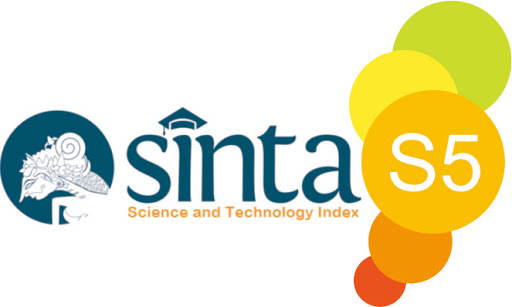DILEMA PENGGUNAAN FIGUR SENTRAL: ANTARA IDEALISME DAN KEBUTUHAN SUARA BAGI PARTAI SOLIDARITAS INDONESIA
DOI:
https://doi.org/10.23969/paradigmapolistaat.v4i2.4353Keywords:
PSI, FIGURE, ELECTIONAbstract
This study discusses the dilemma that occurs in PSI between maintaining party ideals by not using figures or maximizing votes in the first election. The purpose of this study is to discuss how figures play a role in the success of political parties in getting votes in elections. The method used in this study is a qualitative method using two data sources. The data collection technique used is through interviews and from other sources related to this research such as books, journals, and mass media. The theory used in this study is the social dilemma theory proposed by Weiten. The result of this study is that PSI's decision not to use figures as part of its political strategy had a negative impact on vote gains so that PSI failed to reach the parliamentary threshold in its first election. PSI was only able to reach the 12th position of the 19 competing parties. In contrast to the results at the national level, in DKI Jakarta PSI got quite significant results. This is inseparable from the figure of Ahok who indirectly influences PSI's political strategy in DKI Jakarta. As long as figures still play a role as determinants of people's choices, the existence of figures must be included as part of the strategy of every political party. By elaborating between party figures and platforms, the new party will get the maximum benefit
Downloads
References
Burhan Bungin. (2007). Penelitian Kualitatif: Komunikasi, Ekonomi, Kebijakan Publik dan Ilmu Sosial lainnya. Putra Grafika.
CNN Indonesia. (2018). PSI Siap Usung 55 Bakal Caleg Tanpa Pengalaman. https://www.cnnindonesia.com/nasional/20180408091344-32-289195/psi-siap-usung-55-bakal-caleg-tanpa-pengalaman
Demokrat. (n.d.). Sejarah - Partai Demokrat. Retrieved July 28, 2021, from https://www.demokrat.or.id/sejarah/
Fionna, U. (2016). The trap of pop-charisma for the institutionalization of Indonesia’s post-Suharto parties. Asian Journal of Political Science, 24(1), 124–141. https://doi.org/10.1080/02185377.2015.1136227
KOMPAS.com. (2019). Elektabilitas Parpol Menurut Survei Terbaru Tiga Lembaga. https://nasional.kompas.com/read/2019/03/26/09451171/elektabilitas-parpol-menurut-survei-terbaru-tiga-lembaga
LaPalombara, J. (1990). Political Parties: Organization and Power. By Angelo Panebianco. Translated by Marc Silver. New York: Cambridge University Press, 1988. 360p. $54.50 cloth, $16.95 paper. American Political Science Review. https://doi.org/10.2307/1963705
Lexy, J. M. (2004). Metodelogi Penelitian Kualitatif. In Metodologi Penelitian Kualitatif. PT Remaja Rosdakarya.
Liddle, R. W., & Mujani, S. (2007). Leadership, party, and religion: Explaining voting behavior in Indonesia. Comparative Political Studies. https://doi.org/10.1177/0010414006292113
Merdeka.com. (2019). Gandeng ICW, PSI Bekali 67 Anggota Legislatif Terpilih Agar Tidak Korupsi | merdeka.com. https://www.merdeka.com/politik/gandeng-icw-psi-bekali-67-anggota-legislatif-terpilih-agar-tidak-korupsi.html
Mietzner, M. (2009). Political opinion polling in post-authoritarian Indonesia Catalyst or obstacle to democratic consolidation? Bijdragen Tot de Taal-, Land- En Volkenkunde. https://doi.org/10.1163/22134379-90003644
Nimmo, D. (2004). Komunikasi Politik. PT Remaja Rosdakarya.
Partai NasDem. (n.d.). Sejarah Partai NasDem- Partai NasDem. Retrieved July 28, 2021, from https://www.partainasdem.id/pages/sejarah-partai-nasdem
Permatasari, Y., Azhar, M. A., & Apriani, K. D. (2013). FAKTOR FIGUR DALAM KETERPILIHAN ANGGOTA DPRD STUDI KASUS: KETERPILIHAN ANGGOTA DPRD DARI PARTAI GERINDRA KABUPATEN KLUNGKUNG PADA PEMILU 2014. 11(2).
Savirani, A., Tornquist, O., & Stokke, K. (2014). Demokrasi Di Indonesia. https://doi.org/10.31219/osf.io/w5ejk
Sofianto, A. (2013). ORIENTASI PEMILIH TERHADAP FIGUR POLITIK (Studi Pemilu di Jawa Tengah). Jurnal Litbang Provinsi Jawa Tengah, 11(2).
Weiten, W. (2013). Psychology Themes & Variations 8th Edition. In Journal of Chemical Information and Modeling.
Downloads
Published
Issue
Section
License

Paradikma Polistaat: Jurnal Ilmu Sosial dan Ilmu politik is licensed under a Creative Commons Attribution-ShareAlike 4.0 International License
In order to be accepted and published by Paradigma POLISTAAT: Jurnal Ilmu Sosial dan Ilmu politik, author(s) submitting the article manuscript should complete all the review stages. By submitting the manuscript the author(s) agreed to these following terms:
1. The copyright of received articles shall be assigned to Paradigma POLISTAAT: Jurnal Ilmu Sosial dan Ilmu politikas the publisher of the journal. The intended copyright includes the right to publish articles in various forms (including reprints). Paradigma POLISTAAT: Jurnal Ilmu Sosial dan Ilmu politikmaintain the publishing rights to the published articles.
2. Authors are permitted to disseminate published article by sharing the link/DOI of the article at Paradigma POLISTAAT: Jurnal Ilmu Sosial dan Ilmu politik. authors are allowed to use their articles for any legal purposes deemed necessary without written permission fromParadigma POLISTAAT: Jurnal Ilmu Sosial dan Ilmu politik with an acknowledgement of initial publication to this journal.
3. Users/public use of this website will be licensed to CC BY-SA (Attribution & ShareAlike).















